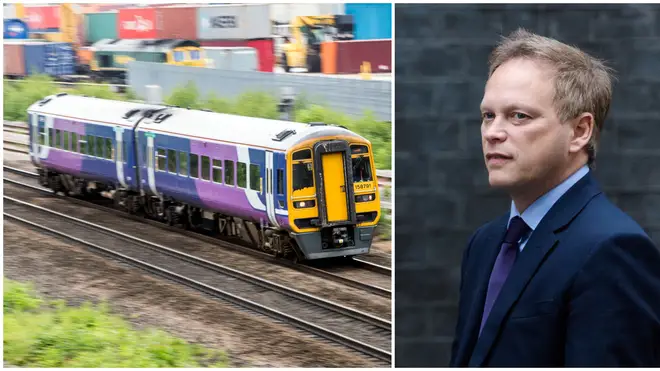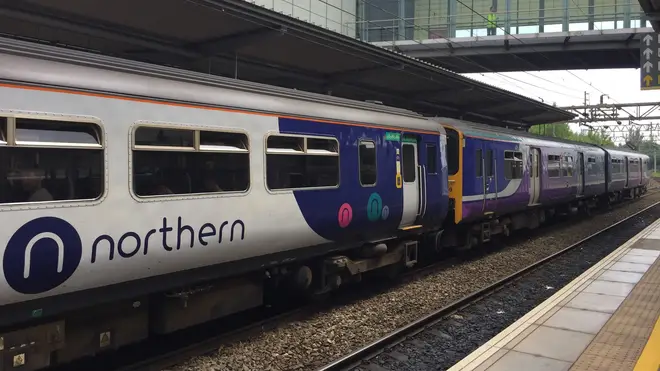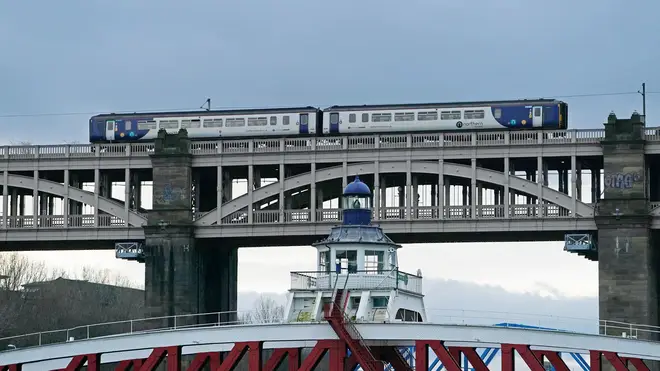
Vanessa Feltz 3pm - 6pm
2 January 2020, 12:30

Train operator Northern will be stripped of its rail franchise following years of cancellations and chaos, transport secretary Grant Shapps has announced.
New timetables introduced in May 2018 caused up to 310 trains a day to be cancelled on the service.
Reliability and punctuality has continued to plague Northern since, with just 55.6 per cent of its trains arriving at stations within one minute of the timetable in the 12 months prior to 7 December.
The average across Britain was almost ten points higher at 65.3 per cent, according to Office of Rail and Road figures.
Mr Shapps' announcement comes as fares across the country rose by an average of 2.7 per cent for the annual rail fare price hike.
The transport secretary said "frustrated commuters will not have to wait long" before action is taken to replace the service.
German-based public transport company Arriva holds the Northern franchise, which is set to run for another five years until March 2025.

Mr Shapps described services on the route as "really bad" and claimed passengers have "had a nightmare on that line" since 2016.
Asked if Northern will be stripped of its franchise, he replied: "The simple answer to the question is yes, it is going to be brought to an end.
"It's partially a legal process but frustrated commuters will not have to wait long."
Shadow transport secretary Andy McDonald responded to the news by criticising the Conservatives for not acting sooner.
"Arriva Rail North should have been stripped of its franchise years ago following its woeful performance and treatment of passengers," he said.
"The Tories stood by as the company ran the service into the ground. They failed to hold Arriva to the terms of its contract and yet again passengers and taxpayers will pay the price."

Mr Shapps announced in the autumn that he had taken the first steps towards potentially taking the franchise away by issuing a "request for proposals."
A new, short-term management contract, nationalised services, or the implementation of the Government-controlled Operator of Last Resort will replace the current agreement with Northern.
The train operating company said unprecedented challenges "outside the direct control of Northern" such as the late delivery of major infrastructure upgrades and delays in the building and delivery of new trains were responsible for its failures.
Mr Shapps told LBC's Nick Ferrari that he was a "frustrated commuter" himself and that he does not think the rail services run "anywhere near punctually enough" due to being too fragmented.
However, he reassured people that this year will be when "we start to see real changes on our railways."
Thousands of long-distance commuters across the country saw their annual cost of travelling to work increase by more than £100 on Thursday, following the annual price hike.
For example, a journey from Reading to London has increased by £132 to £4,7362, a commute from Gloucester to Birmingham has risen by £118 to £4,356, and a trip from Glasgow to Edinburgh via any permitted route has been hiked £116 to £4,200.
However, fewer than half (47 per cent) of passengers surveyed by the watchdog Transport Focus are satisfied with the value for money of their train tickets.
Emily Yates, the co-founder of campaign group the Association of British Commuters, said: "It feels like Groundhog Day, to be honest, it's a complete charade.
"Every year, we ask for a fares freeze, the Government says no and the rail industry defends the decision."
Accountant Andrew Jordan, 24, who was travelling through London Bridge station, described the fares rise as "quite galling for me as a commuter".
He said: "The services don't get any better. You'd like to get something for your money."
Robert Nisbet, director of nations and regions for industry body the Rail Delivery Group, urged passengers to "bear with us".
He acknowledged there are "pockets of difficulty around the network" but insisted "we're tackling them".
He added: "By the mid-2020s we should have replaced half the entire rolling stock of Great Britain and added 11,300 services every weekday. That is a significant investment."